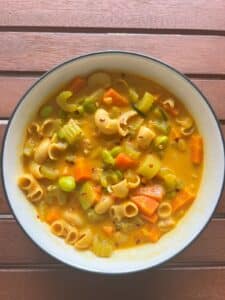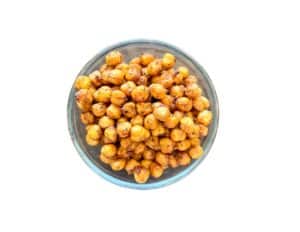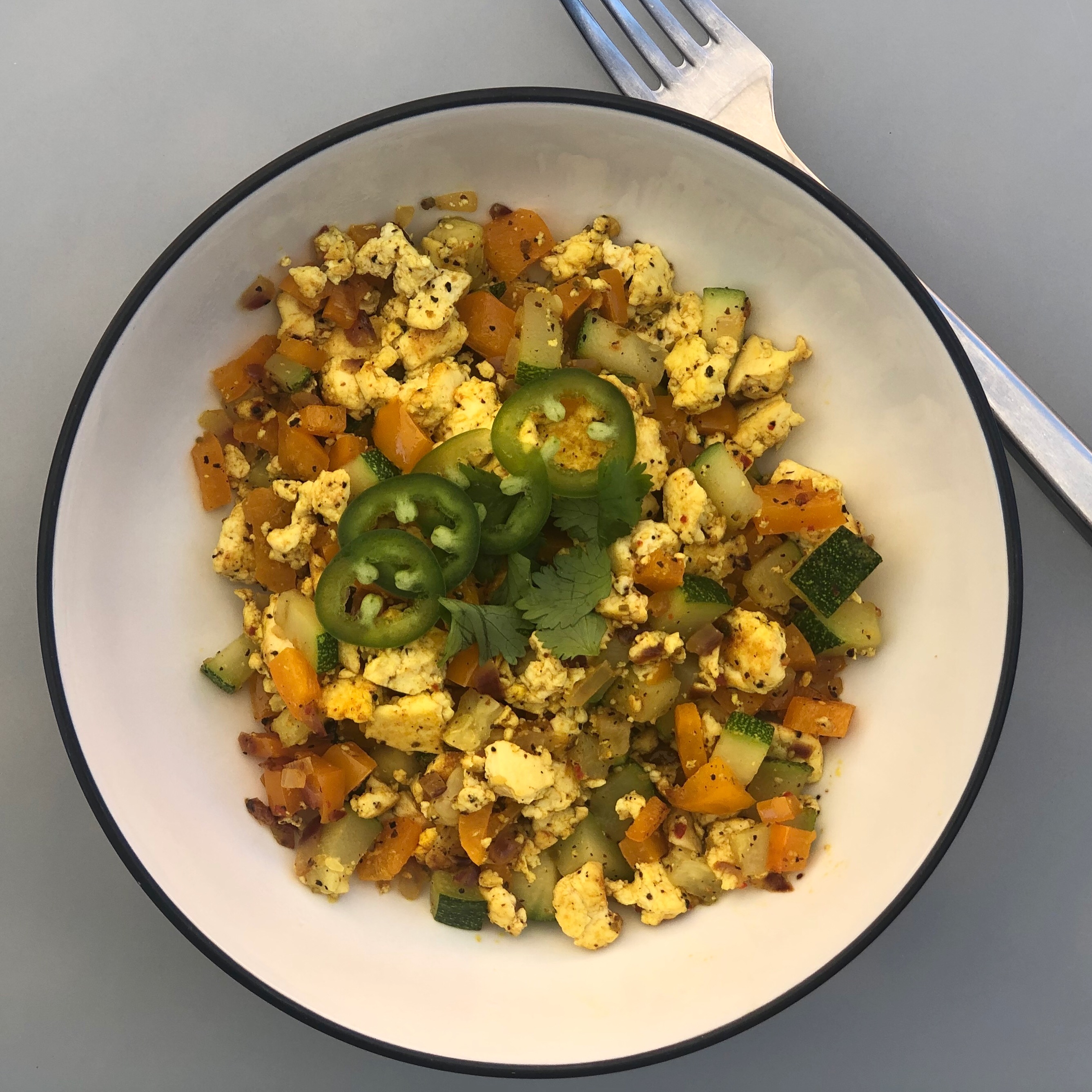What should you eat to protect your kidney function?
If you have kidney disease, you are likely confused by all of the contradicting, “best foods for kidney disease” lists that you find on the internet or get from your doctor!
The truth is, a healthy renal diet should be individualized. People with kidney disease have different health histories, labs, stages of disease, medications, and nutrient needs.
So while these aren’t the ONLY foods you should be eating, these are foods that are kidney protective!
Since everyone with CKD has different potassium needs (some need to restrict and some do not) the foods I provide on this list are low-moderate in potassium. This allows for people with all stages of kidney disease to consume larger quantities of these beneficial whole plant foods.
If you prefer to watch a video, you can get get all of this information in this video!
#1: Non-Starchy Vegetables
You should be filling up half your plate with these! Non-starchy veggies are all the veggies besides the starchy ones (potatoes, sweet potatoes, corn and peas). You can still eat the starchy ones, but they shouldn’t make up half your plate.
Some great options that are low-moderate in potassium are: arugula, asparagus, bell pepper, broccoli, cabbage, carrot, cauliflower, celery, cucumber, collard greens, eggplant, green beans, jicama, kale, spaghetti squash, snow peas and sugar snap peas.
You can eat your non-starchy veggies raw or cooked. Try steaming, roasting, sautéing, boiling, blanching, or even microwaving them. Frozen is just as healthy as fresh! If you need to buy them canned, look for low sodium varieties and drain/rinse them!

#2: Higher Fiber Fruit
Just like veggies, fruit are negative PRAL (potential renal acid load). This means they are more alkaline producing and help get more vitamin C, fiber, antioxidants, and other nutrients in the diet.
Many people with kidney disease also have high blood sugar and may need to limit the portion of fruit they consume. It also helps to pair fruit with a healthy fat or protein source to slow digestion.
Some universally higher fiber, low-moderate potassium fruit are: blueberries, blackberries, raspberries, strawberries, apples, cranberries, pears, and pineapple.
#3: Plant Protein
Whole, minimally processed plant protein is easier on the kidneys. I am not talking about ultra processed “plant based meats” here. You do not see the same benefit of cutting meat out and replacing it with plant based sausage, burgers, chicken, etc!
Some top plant protein options that are minimally processed and low-moderate in potassium are:
- Legumes: chickpeas, green peas, black eyed peas, red lentils, Peruano beans, and black beans.
- Organic tofu: tofu is so versatile and delicious when you season/cook it correctly! Check out my recipes page to learn more! Tempeh and edamame are also great soy options, but they are higher in potassium.
- Soy free options: if you can’t have soy, there is something called pumfu that is like tofu. It is made out of pumpkin seeds. You can also make tofu out of chickpeas for a soy free version!
#4: Healthy Fats
Fat is essential to include in your kidney friendly diet. When you are limiting protein, you have to increase other macronutrients (fat and carbs) to ensure adequate calories. The goal is to include fats that are more heart healthy!
- Avocados: while avocados are high in potassium, they are a great nutrient dense food and good source of fiber. ¼ of an avocado is still considered low potassium (172 mg potassium).
- Nuts and seeds: Low-moderate potassium options include; walnuts, pecans, macadamia nuts, ground flaxseed, chia seeds, and pumpkin seeds. These foods also provide some plant protein!
- Nut butters: Nut butters made from cashews, peanuts, or sunflower seeds are all moderate potassium options. Make sure you get one where the only ingredient is the nut or the nut and a little salt. No added sugar or oil!
For cooking, I recommend using olive oil for no-low temp and avocado oil for medium-high temp.
#5: Higher Fiber Whole Grains
If you are very insulin resistant and have uncontrolled Diabetes, your whole grain portion may need to be smaller. It should not be the bulk of your plate (that’s for non-starchy veggies).
Some low-moderate potassium options that are also good sources of fiber include: barley, farro, millet, oats, bulgur, brown rice and wild rice.
A better bread option is sprouted grain bread (like Ezekiel bread) or a traditional sourdough (lower glycemic index).
Keep in mind that people can have different blood sugar responses to different grains. If you are checking your blood sugar at home you can see how your body responds to different grains and adjust portion/consumption from there.
There is a big difference in consuming a burrito bowl that is mostly rice at the base and one that is mostly non-starchy veggies at the base with ½ cup of rice on top!

Get These Kidney Healthy Foods In Your Diet!
Start with one meal that you’re familiar with. Can you add more non-starchy veggies to it? Try swapping tofu or chickpeas for chicken or beef. Instead of scooping 2 cups of rice into your bowl, use 2/3 cups of farro or millet.
Small changes add up over time and reduce the overwhelm of making changes to your diet. You CAN DO THIS!
I want to reiterate that these don’t need to be the ONLY foods you consume. But they are important kidney protective foods.
If you eat meat/animal protein, it’s important that you’re pairing them with these lower PRAL, higher fiber plant foods to help offset the acid load and high protein that they provide.
You don’t have to be 100% plant based to see benefits. But you do need to be mindful of adding more veggies and fruit (especially veggies), swapping some meals with plant protein, and limiting the amount of ultra processed food that you consume.
I have a free CKD Grocery List that you can download that includes many of these foods I listed!






